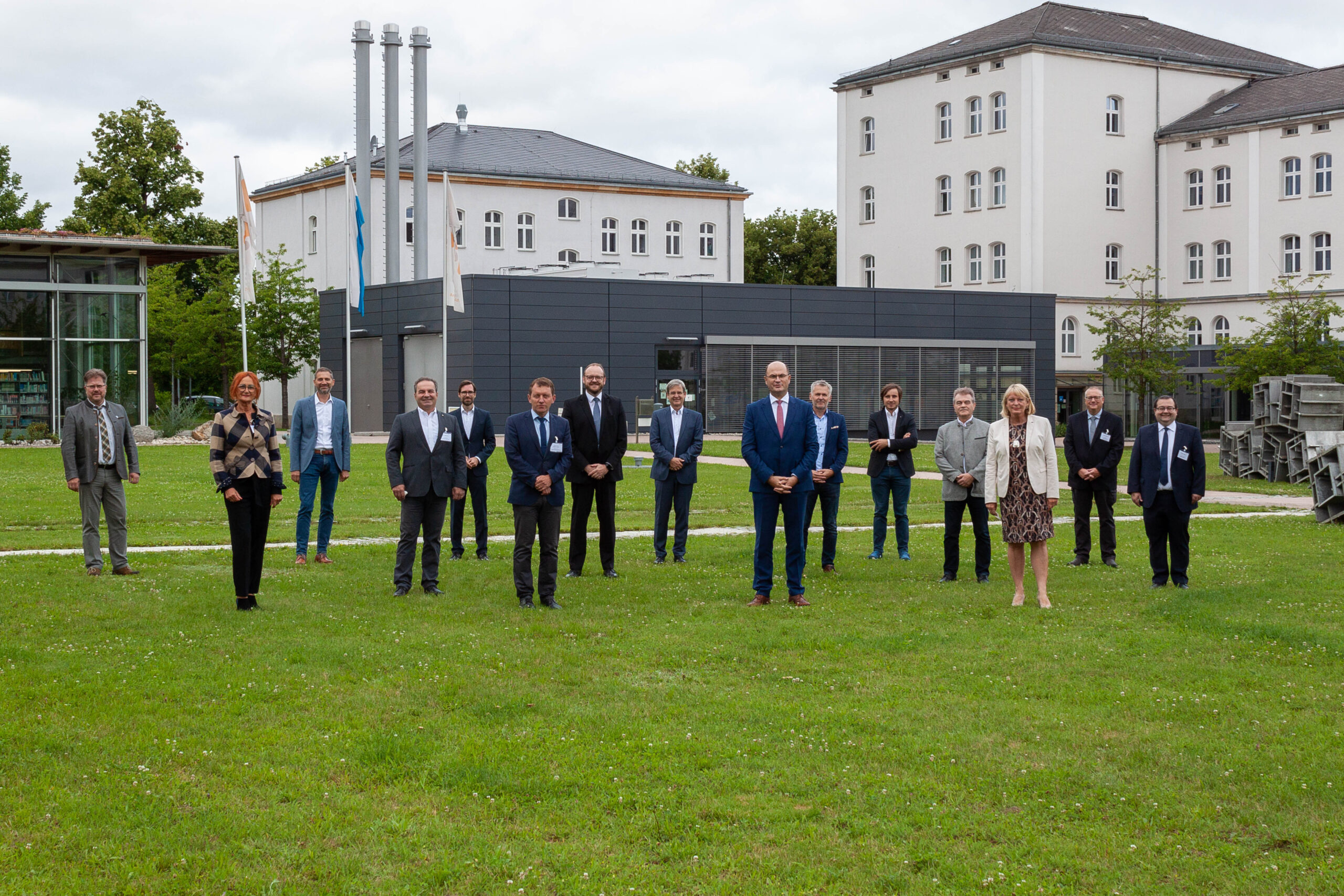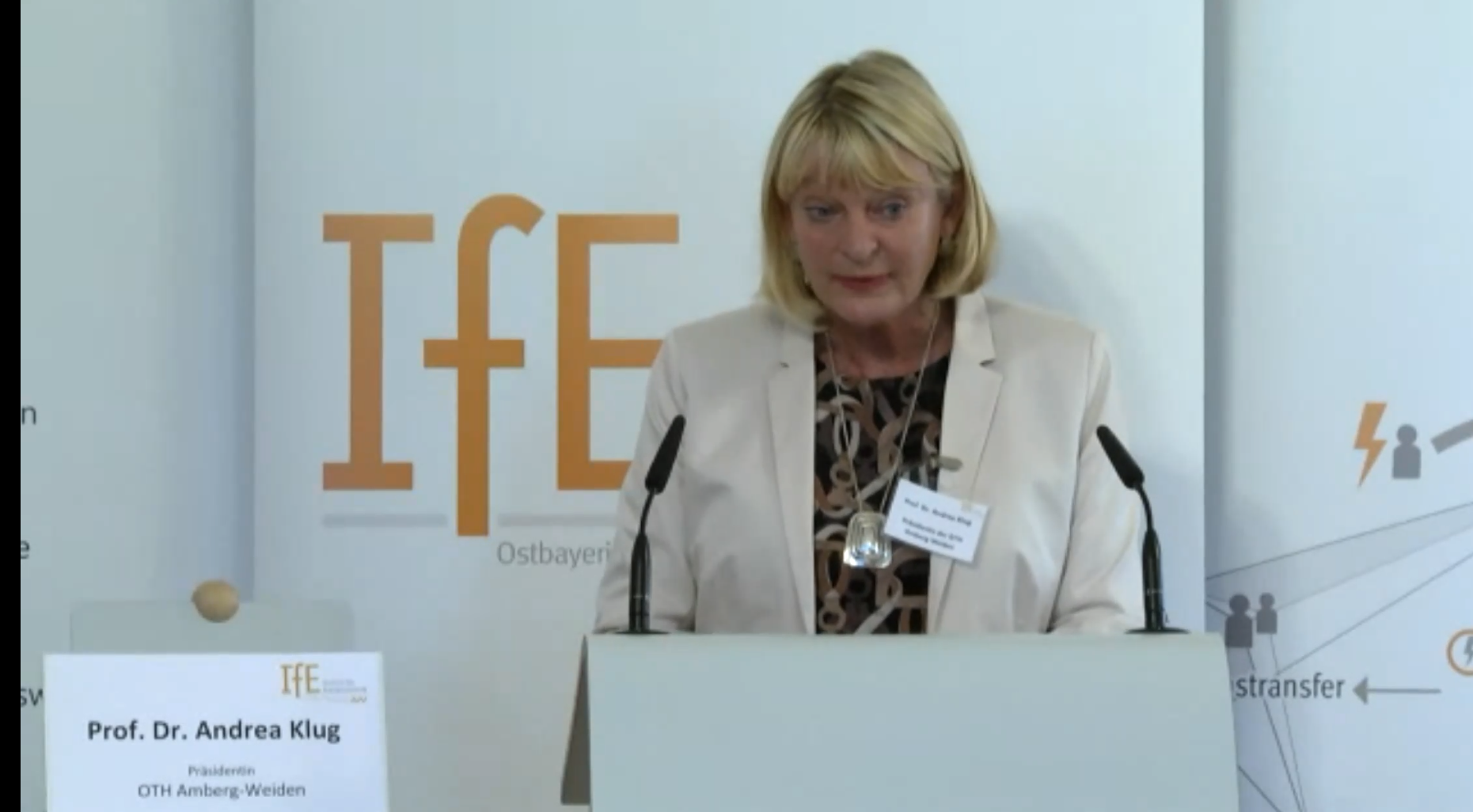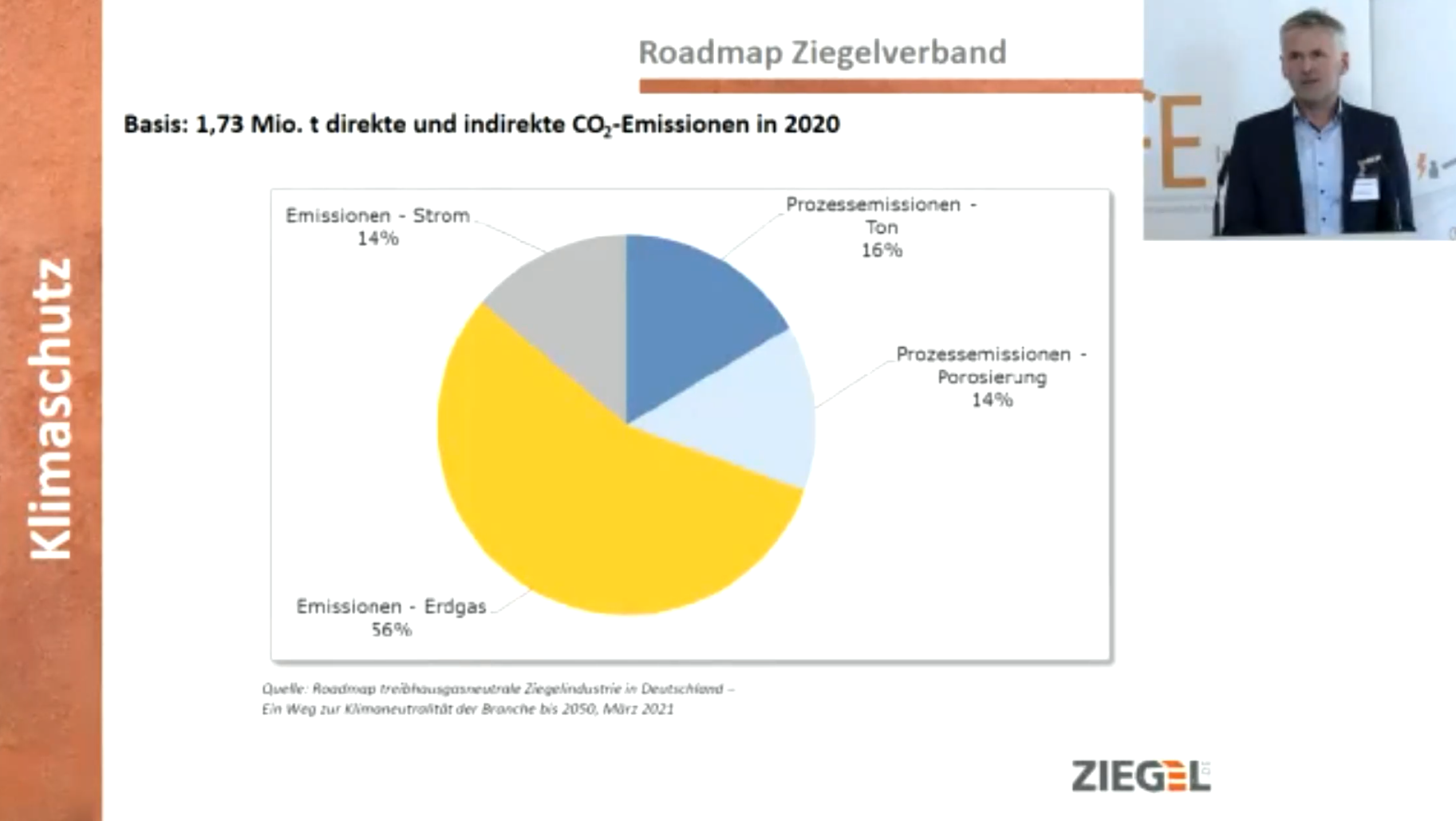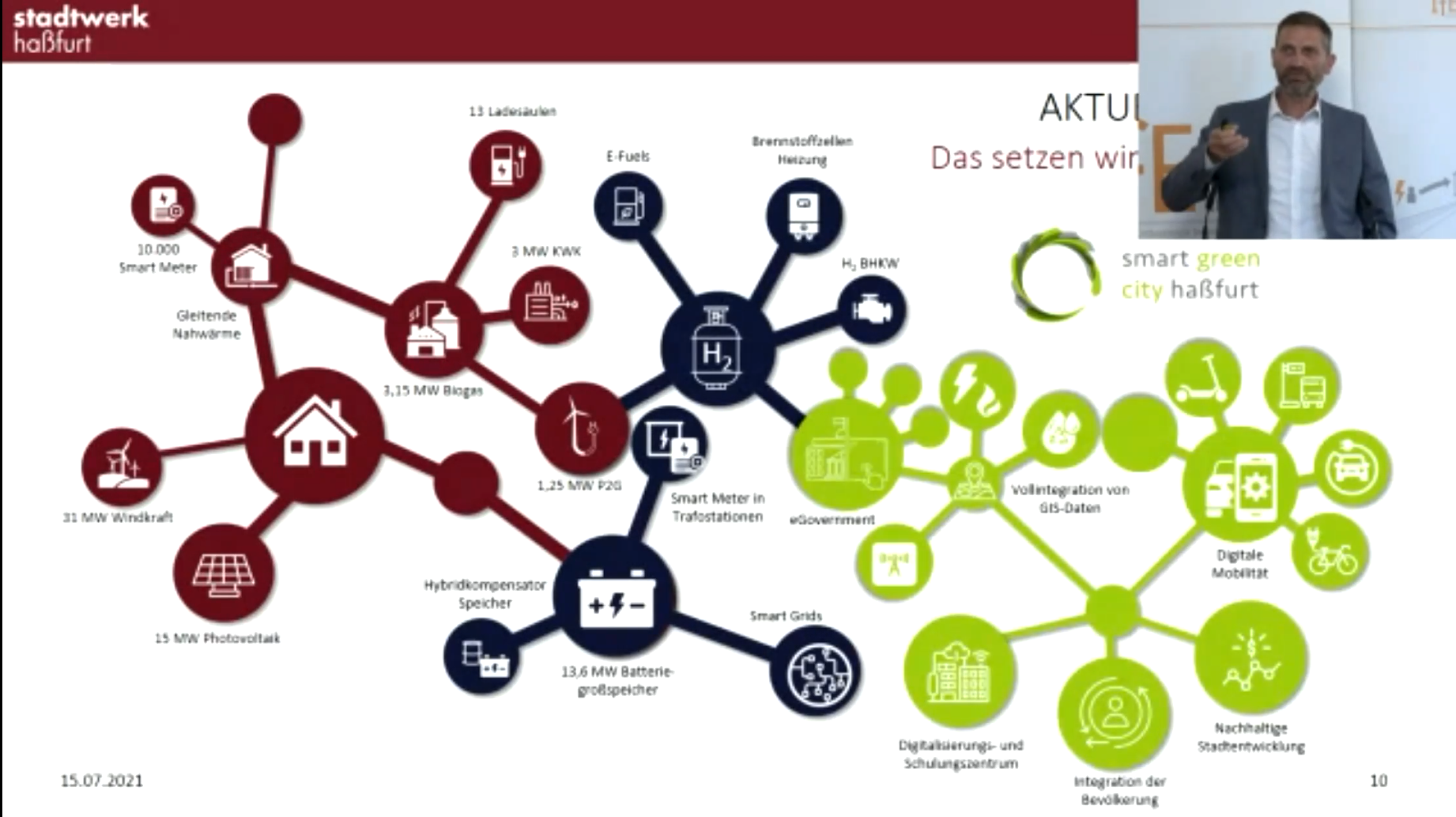150 Participants at the Large Bavarian-Czech Energy Efficiency Network Meeting
on 15 July 2021, the third Bavaria-wide network conference of the Institute for Energy Technology (IfE) at the OTH Amberg-Weiden took place for the first time with participation from other European countries. Representatives from 224 municipalities, hospitals, water suppliers and municipal companies and 40 commercial enterprises were invited to the hybrid event. In addition, the participants of the German-Czech cooperation project “Energy Efficiency Networks” were able to participate virtually. The hybrid event was therefore simultaneously translated from German into Czech for the first time.

Third Bavaria-wide network conference with Czech participation for the first time
Prof. Dr. Andrea Klug, President of the OTH Amberg-Weiden, and Prof. Dr.-Ing. Markus Brautsch, Institute Director of the IfE, opened this year’s network conference in the large Senate Hall. The focus this year was once again on cross-network exchange and the presentation of best practice examples. The transfer of knowledge into practice has a lasting impact on the IfE and is an essential success factor for the work in the networks. “Politics, business and science can only successfully master the challenges of our time if they work together. The responsible use of resources and sustainable energy technology are essential to achieve the defined climate protection goals and are clearly among the challenges of the future,” says Prof. Klug.
Further Information

Albert Füracker, Minister of Finance and Home Affairs, praised the commitment of the Institute of Energy Technology and emphasised in his welcoming address: “Climate protection is a top issue for the Bavarian state government, the municipalities and the Bavarian economy – and has been for quite some time. The Free State of Bavaria wants to remain a pioneer here and is therefore making great financial efforts in the area of climate protection. In the 2021 state budget alone, around 1 billion euros have been earmarked for climate protection measures. But our climate goals can only be achieved with the greatest technological, financial and social efforts! From the state and local authorities to the economy and each and every one of us: we must all pull together if we want to be successful! We therefore also need creative and innovative approaches to reduce energy consumption. The energy efficiency networks, of which the Institute for Energy Technology IfE GmbH at the OTH Amberg-Weiden is the network sponsor, have been working successfully for many years on a significant increase in energy efficiency through regional exchange of experience and ideas. In this way, resources are conserved and emissions are reduced at the same time. My thanks go to all those who have joined together to form energy efficiency networks and thus make an important contribution to tackling this major task for the future.”
In the subsequent panel discussion on the topic of “Current innovation projects from the networks in the target triangle of ecology-economy-security of supply”, Joachim Haller (1st mayor of Markt Bodenmais), Dieter Möhring (1st mayor of the municipality of Aidhausen), Thomas H. H. (1st mayor of the municipality of Adenburg), and Thomas H. (1st mayor of the municipality of Adenburg) stood before the panel. Mayor of Aidhausen), Thomas Söder (1st Mayor of Hallstadt), Franz Löffler (District Administrator of Cham, President of the District Assembly), Andreas Meier (District Administrator of Neustadt a. d. Waldnaab) and Robert Ilg (1st Mayor of Hersbruck). The chat function of the digital platform enabled the online participants to actively participate and thus contributed to an interactive discussion round.
During the expert presentations, the participants of the network conference gained insights into best practice examples on relevant contents of the networks:

In a practical presentation, Johannes Edmüller (managing director) and Bernhard Schmidhammer (technical manager) of Schlagmann Poroton GmbH & Co. KG highlighted possibilities for CO2 reduction in the industry and addressed both technical possibilities and economic challenges. How to make the red brick greener has been on the company’s mind for quite some time. The foundation for this was laid in 2012 with the introduction of an energy management system. In annual energy audits, the energy-related processes are checked, analysed and constantly optimised. By implementing various measures within the framework of the energy management system, it has already been possible to save 13,000 t of CO2 annually. However, this presentation also makes clear that it takes enormous effort to bring economy and ecology into harmony.
Rainer Wagner, operations manager of the energy network of the city of Freilassing, told the participants of the network conference about the development of a municipal heating and area power network from renewable energies based on the implementation project from the digital energy use plan Berchtesgadener Land. In his presentation, Wagner described the development process and the special features of the 936 m long heating network and explained that the network loss is only 7.1 % in practice. Parallel to the heating network, an electricity network was set up in Freilassing that is unique in this form. The properties were interconnected via the city’s own low-voltage lines and connected to the upstream medium-voltage grid via a common grid connection point. By making maximum use of renewable regional resources, the highest possible degree of self-power utilisation of around 90 % is achieved without the use of battery storage. This is made possible by flexible and demand-controlled operation of the CHP plants and the sensible integration of the heat and sewage gas storage facilities.
Norbert Zösch, Managing Director of Stadtwerk Haßfurt GmbH, spoke about the establishment and operation of a municipal hydrogen infrastructure and shared operating experiences and perspectives. In his exciting contribution, he showed how Haßfurt succeeds in balancing the fluctuations of renewable energies and even in generating surpluses and using them sensibly. The electricity of the Haßfurt municipal utility is generated with a renewable energy share of 111 % by wind turbines, photovoltaics, biogas and hydropower. Surplus electricity is not only stored in battery storage, but also converted into hydrogen by a power-to-gas plant. The gas produced in this way can be stored and converted back into electricity and heat at any time by the CHP unit. Zösch also sees enormous potential for CO2 savings through regeneratively produced hydrogen and various possible applications in industry and transport.

Cristina Pop, plant manager of SER Straubing, reported in her lecture on the current state of affairs regarding the inter-communal energetic sewage sludge utilisation in the mono-incineration plant in Straubing and thus took up a central topic of the networks. Ms Pop presented the special features of the plant in Straubing and at the same time explained the challenges of implementing mono-incineration plants in the vicinity of settlements.
Jan Spale from the University Centre for Energy Efficient Buildings (UCEEB) in the Czech Republic presented the German-Czech cooperation project “Energy Efficiency Networks” to the conference participants. This project is funded by the German Federal Ministry for the Environment as part of the European Climate Protection Initiative and aims to transfer the Bavarian success model to other European countries. Energy saving projects in municipalities and companies are to be promoted and the energy efficiency networks that have been very successful in Bavaria and Germany are also to be established in the neighbouring country of the Czech Republic.
